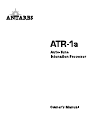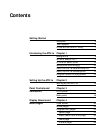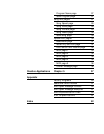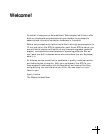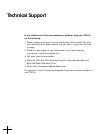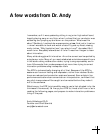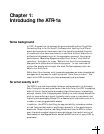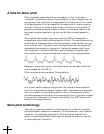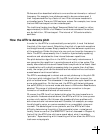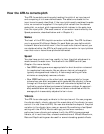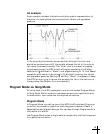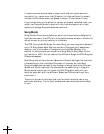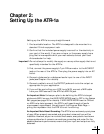
7
A few words from Dr. Andy
I remember, as if it were yesterday, sitting in my junior high school band,
happily playing away on my flute, when I noticed that our conductor was
screaming and jumping up and down on the podium. What was this
about? Suddenly, I realized she was screaming at me. And just in time too
— since I was able to duck and watch a baton fly past my head, missing
me by inches. “Why [expletive] can’t you play in tune?” she asked. But I
was in tune. Everybody else was out of tune. It was then I began to learn
about intonation.
Many artists struggle with intonation. An entire concert can be spoiled by
a single sour note. Many of our most celebrated entertainers spend hours
in the studio doing retake after retake, trying to sing expressively and in
tune. Afterwards, their producers spend yet more time trying to correct
intonation problems using inadequate tools.
The ATR-1a is dramatically changing all of that. Because of the ATR-1a,
sessions can focus on feeling and expression, rather than retakes. Studio
hours are reduced and production costs are lowered. Even artists in live
performance situations can concentrate on interpretation, confident that
any pitch inaccuracies will be caught and corrected before they make it
out to the audience.
What’s more, the ATR-1a is incredibly easy to use (a fact attested to by the
thinness of this manual). So fire up your ATR-1a, invest a half hour or so in
reading the following pages, and prepare to make intonation problems a
thing of the past.
Andy Hildebrand Ph.D.
Founder and Chief Scientist
andy@antarestech.com



